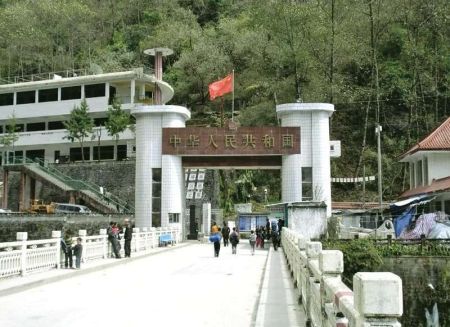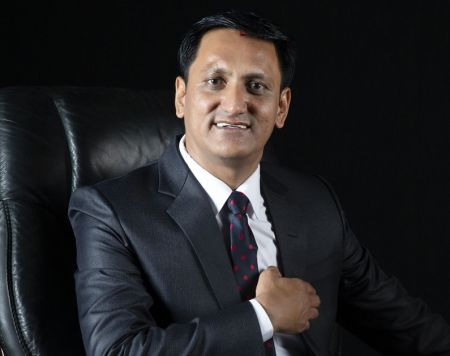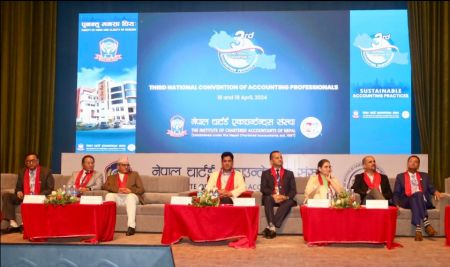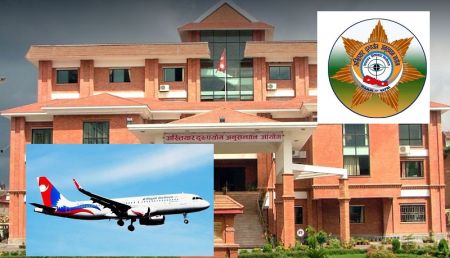--By Roshee Lamichhane Bhusal
First, let me delve into some of the myths and stereotypes that surround research before I share my reflections on the realities of research.
The first myth—‘research qualification invariably brings quality into individuals’— is one that generally makes the rounds in academic circles meaning thereby that those who possess or acquire research degrees, by default, become better educators and purveyors of knowledge than those who do not have research qualifications.
The second misconception is that a first research degree such as an M.Phil acts as the launching pad and a spring board for obtaining the most coveted qualification viz., Ph.D—almost as a resultant natural consequence!
A third misnomer, which has the potential to negate the very primary purpose of research, is that research degrees sling shot one’s academic or corporate career into higher positions through promotions.
It is at this juncture, we need to pause for a while and examine these myths and misconceptions and question them through some serious introspection and reflection.
Let me begin by saying that universities are the real epitome of knowledge, wisdom, research, extension, training, and consulting that convert the human ‘potential’ into "reality". They should help facilitate individual, team, and organisational learning through interaction, listening, and self-examining processes. As seats of the highest possible learning, they stand tall at the exalted pedestal for the growth and development of human resources. However, a reality check would make us realise the fact that they, of late, are turning out 'Management Graduates' but not 'Managers' and 'Engineering Graduates' but not 'Engineers’. In the same breath, and going by the current status and trends in management research, one may be constrained to say that they are producing research degree holders but not real ‘researchers’ in the real sense of the term.
A stigma that is already attached to academics in general is that they are engaging themselves actively in transmitting information from the textbooks to the notebooks of the students while producing nothing new or productive. Undoubtedly, this is only a reproduction of the old concepts and thoughts as well as a reiteration of the existing models and theories. Educators end up outliving their utility as they are mostly guilty of imitating others when they are expected to be upgrading their knowledge and updating their skill sets.
Little do we realise that the purpose of research should be to add something tangible to the existing body of knowledge. Often times, it may entail challenging the concepts and theories requiring either replacing with newer ones or reversing them altogether. However, we rarely witness such enlightening and path breaking research being produced. We continue to remain mute witnesses to such a hapless state of affairs in management research.
Researchers need to avoid the trap of “defensive routines”. These habitual reactions and responses may prevent embarrassment and threats. However, they do the real damage by preventing real ‘learning’ from happening. To be successful in their efforts, it is extremely important that researchers minimise the mystery and mythology that surround real research and thoroughly understand the methodology and technology involved in carrying out purposeful research. This means that a high value must be placed on making the concepts (their operational definitions), constructs, assumptions, and hypotheses clear and openly visible. Stakeholders of research output and outcomes such as client organisations or funding agencies do not wish manipulations or have things done to them, particularly in mysterious ways. Management research pursuits should enable and result in societal members developing and using their resources and talents as fully as possible towards individual growth, organisational success, and social well-being.
In short, a major emphasis of research contribution has to be on a real addition to the existing body of knowledge, opportunity for self-directed personal growth of the researcher, and increased effectiveness for individuals, groups, and organisations of a civilised society.
It is no denying the fact that research programmes do succeed in inculcating some useful academic and professional values into the educator-research scholars. However, we shall reap the real gains only when we start questioning the very rationale and continued validity, relevance, and utility of some of the theories that we, as educators have been monotonously lecturing on and discussing in our class rooms.
Research—especially in management—is empirical in nature and action-orientated by character. Of course, it has to be suitably supported by the much needed rigours of theoretical back up. It has to drive people with a research bent of mind to increase their powers of creativity and become more analytical and critical in their respective domains.
It is worth mentioning here that there are two philosophical and pragmatic values that underlie management research. The first is that research programmes designed to solve real, not hypothetical problems should be based on valid public data generated scientifically. This belief calls for management actions to be based on evidence-based diagnostic research—the ‘action should follow research’ mode of thinking. Or, to state it another way, diagnose the problem in business and base administrative decisions and managerial actions on that diagnosis. The second value is that business strategies in the real world should be accompanied by iterative research once again on that action, in order to build a cumulative body of knowledge and theory of the effects of various actions directed to solving real business problems—a ‘management research should follow action’ mode of thinking. Only when management researchers systematically do research on and evaluate business decisions can we know the real effects of these actions. And only when management researchers succeed in systematically building a body of knowledge can we build better business designs, models, and theories.

We should always keep in mind that the very purpose of research of any kind should be tangible and substantial and not superficial. Research scholars are believed to belong to a special creed and breed and made of different material. It is high time that both practitioners and other professionals in the field started viewing outputs and the outcomes of management research as a real value addition for the resources they expend and the money they spend. To make this a reality, research has got to be carried out in the way it ought to be done. Or else, despite being called as privileged individuals, researchers would be attracting criticism from all quarters for making a mockery of the research activity. Promotions-driven and career-centric research by academicians is no serious research at all and it is never worth the name and the game.
The real paradox is that while universities are manufacturing graduates and scholars in large quantities, they are not able to produce quality research. At a macro level also, the bane of the situation is that our public policies are poorly crafted while they are woefully implemented.
There is yet another problem with us: our mindset! We start off with a set mind and we rarely attempt to discover the ‘Truth’; we try to simply redesign it. We become oblivious to the fundamental tenet that our society itself is a product of ‘research’ as corroborated by our ancient Vedas, Puranas, and other age old scriptures. We also do not realise that research, after all, is a trainable, developable, promotable skill just as management discipline itself is identifiable, measurable, and transferable.
Research intrinsically involves two dimensions, namely, external and internal. While the former dimension attempts to externalise the purpose of research through a process of inquiry and investigation, the latter oeing ne tries to internalise the learning process itself on the lines of yoga, meditation, and contemplation.
One can draw an excellent parallel from Gautama Buddha’s episode of achieving enlightenment. As a case in point, it amply illustrates the internalisation process. After possessed by the “demons” of ignorance and a great struggle within himself, he finally breaks through the illusions of his own mind and experiences the ultimate—the true ‘reality’.
Viewing any kind of money spent on research as ‘cost’ rather than as an ‘investment’ is tantamount to degrading its imperativeness and utility. Research gains and retains credibility only when it is carried out by researchers who consider themselves to be truly empowered individuals having the needed freedom and autonomy. Research is never ‘cost free’ as it is a resource consuming activity.
In the modern era, ‘Hunger for knowledge’ is grossly insufficient and passé. The new mantra ‘anger and intolerance for ignorance’ alone would keep us in good stead. Attempting to build institutions rather than simply carrying out instructions is the order of the day. We are tested for abilities to produce purposeful outputs to the institutions we work for and also positive outcomes to the society that we live in through our professional, social, and ethical means. It is only by involving ourselves in research, will we find the purpose of our education.
Any research activity should not be reduced it to the status of a hurried through ‘survey’ only to churn out some report to be submitted to sponsoring governmental organisations or fund giving donor agencies. One more vital fact that often gets glossed over is that while technology can be borrowed and resources can be bought, indigenous knowledge is always ‘homegrown’ to be of relevance and real use.
In conclusion, one can say research should be rich for its meaningfulness and affirmative societal contribution. It becomes meaningless if it just succeeds in making you rich! We need to remember that we are not resource poor but choose to remain research poor.
The writer is a lecturer at Kathmandu University School of Management (KUSOM). She can be reached at [email protected] or [email protected]






















